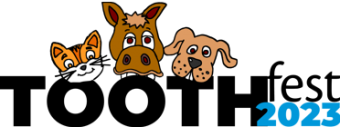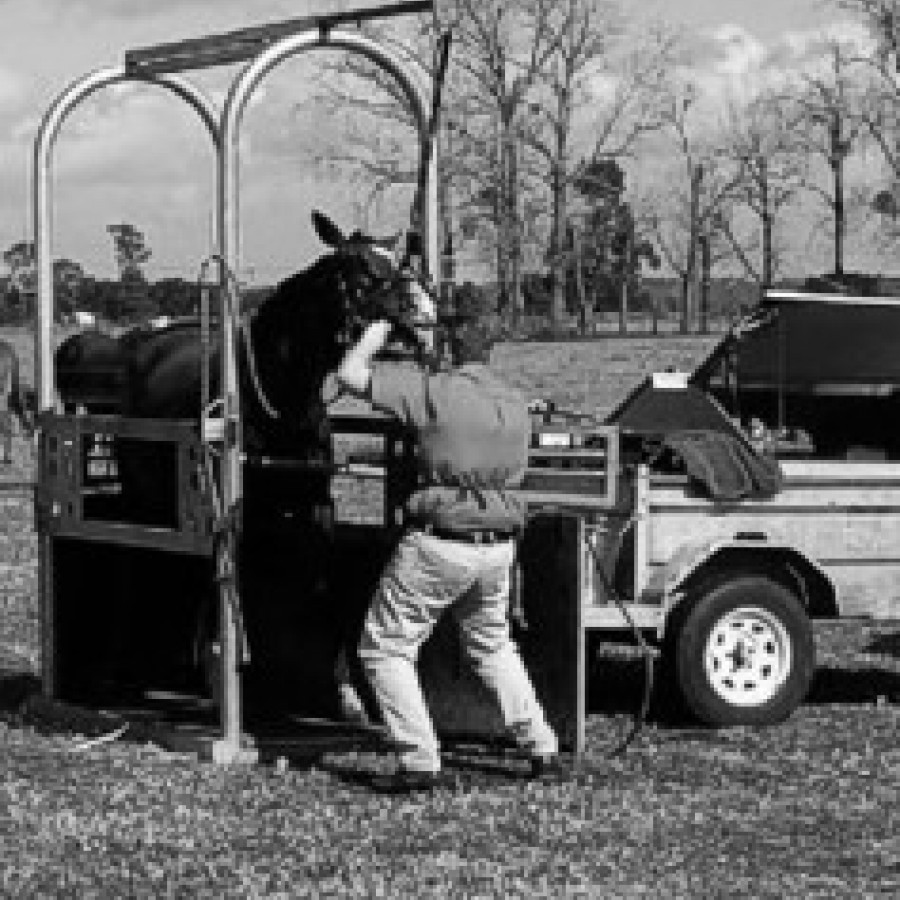

By Dr Oliver Liyou BVSc (Hons) MACVSc
Published in Australian Stock Horse Journal March-April and May-June 2005
One of the most rewarding and challenging parts of being an equine dental practitioner is being able to work on the mouths of geriatric horses, ie over 20 years old.
These old timers are still poking around the farm for any one of a number of reasons - mostly positive. I love hearing the stories of what these horses have done and how they've contributed to happiness in so many peoples lives. It may be that they have been a good performing horse in their younger days and they are now being used to teach young kids how to ride, that they have good "tough" genetics, that they have been looked after well throughout their life, that they are a good broodmare who continues to produce good foals or just simply because they are determined old buggers that don't want to die!
Often there is a strong emotional value on these horses, and if they are safe and teaching young kids how to ride, then they are probably of significant financial value as well.
We are now being called to examine more geriatric mouths as the education of owners is slowly dismissing the myth that old horses "wouldnt have many teeth anyway and so do not need dentistry". Old horses need dental checks as much or more than any other age of horse.
Advanced gum disease or periodontal disease is present in approximately 60 per cent of horses over 15 years of age. Periodontal disease feels like what we get when we have a piece of meat caught in our teeth for several days. This gum disease is painful, will lead to premature loss of teeth, and can potentially contribute to other health problems in other parts of the body. It is important to detect and treat it early in order to try to prevent it becoming irreversible. Periodontal disease may have signs such as spilling feed, packing feed in the cheeks, bad breath (halitosis), slow eating and drooling of frothy saliva when eating.
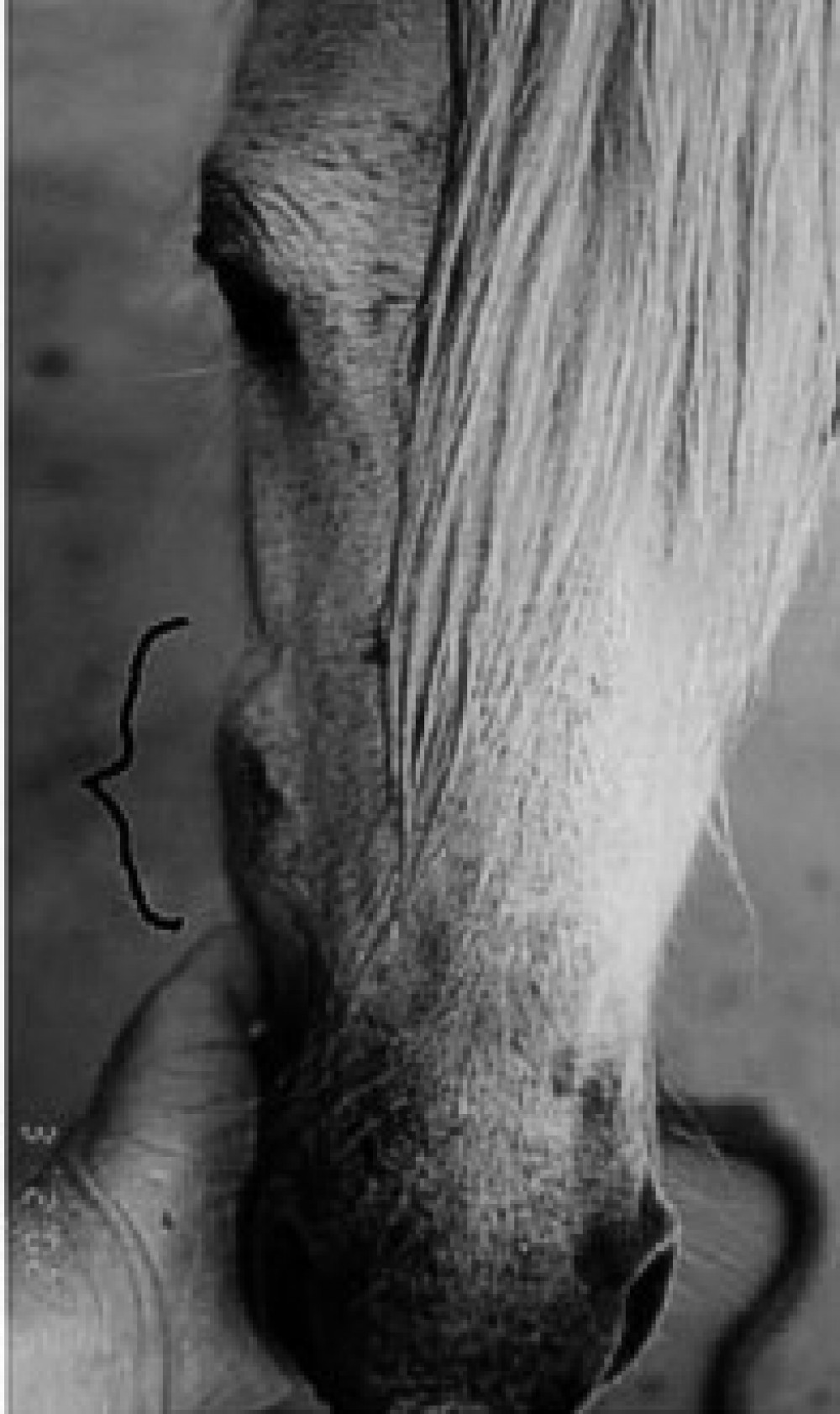
Dental disease is a major cause of weight loss in old horses. But it is important to perform a clinical examination on a horse with weight loss, as other causes may be the problem. These could include liver, kidney or heart disease, cushings disease, parasites, cancer, poor nutrition, and even the horse being low on the pecking order at feed time.
One of the challenges with the old horses is their toughness when it comes to doing a good oral examination. By saying a good oral examination, I mean flushing the mouth out well, using a strong light and a mirror. These are necessary if you are to detect early signs of gum disease. We must remember that dentistry involves more than just teeth.
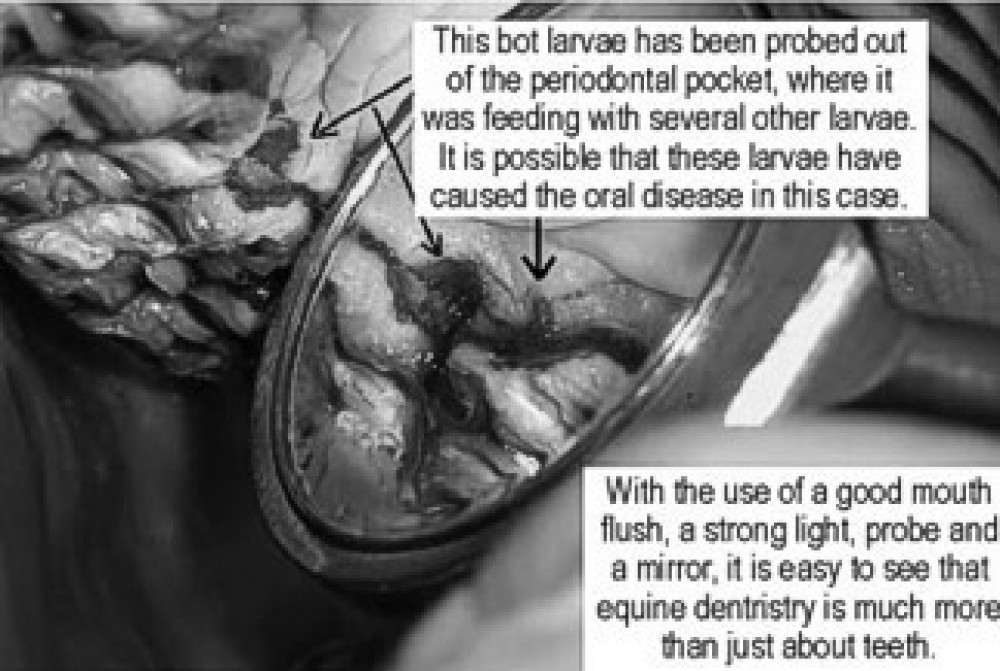
The old horse may be quiet to handle, but some times they are not so willing when it comes to looking in their mouths. Reasons for this are many and include:
- bad memories of prior stressful dental treatment
- present painful conditions in the mouth
- TMJ (jaw joint) disease
These old timers did not hit the ripe old age of 20 for being pushovers. They are tough and so if they are not cooperating, sedation may be necessary just to look and feel in their mouths properly.
Because they are old, the type and dose of sedation is critical, so that it does not lead to other problems. Your vet will often use a mix of different sedations and pain relief, in order to make the sedation effective, and yet safe on the animal.
I regularly use a cocktail of up to 4 different medications in order to produce the best sedation for that horse and the procedure we are embarking on in the mouth.
Once in the mouth, it is common to find dramatic pathology. The sad part is that most of this pathology would have been avoided if the horse had received good regular dental maintenance as a young horse.
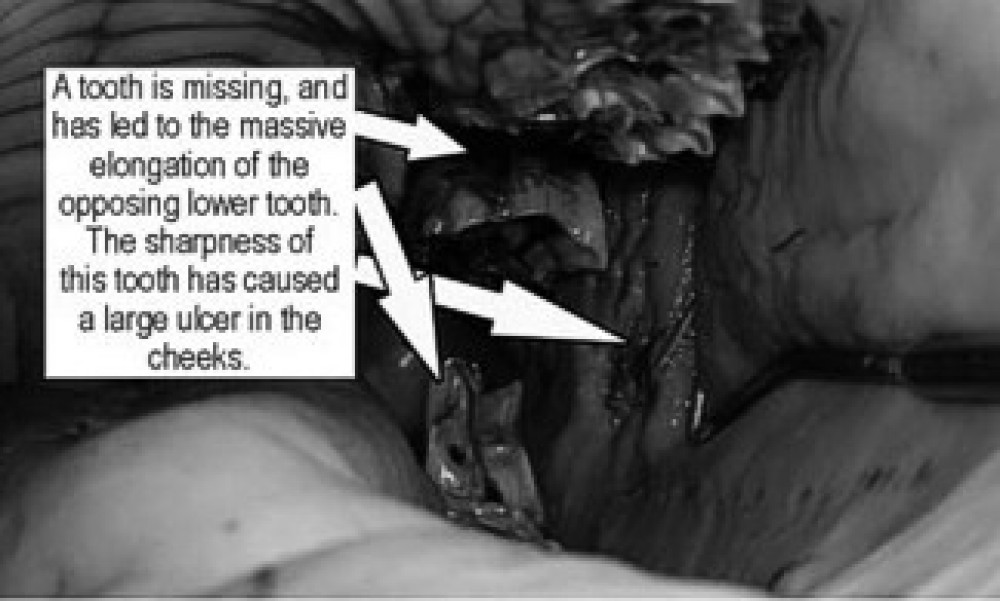
Hopefully with better education, and with better skilled and equipped operators practicing equine dentistry these days, our old horses will have much better mouths in the future. This will lead to these horses living and competing for longer. With the amount of time, money and stress spent on finding a new horse to replace a retired horse, it must be a good thing if we can have our good performance horses last longer.
Regular dental visits are beneficial both in the short term and in the long term.
I often laugh at how my human dentist, "Painless Pearson" as he is known to locals, told me that I don't need to floss all of my teeth — only the teeth that I dont want to lose!
The same goes for horses having their mouths looked after throughout life.
Prevention is the key to long lasting good health. Everything we can do to avoid having to extract teeth in horses will contribute significantly to their longevity.
It is interesting to note the oldest living horse was 64 years of age, back in the 1800s, in an era when horses were taken care of very well due to their economic importance in everyday life.
The incisors (front nippers) should always be checked first. They may need treatment and can also give us clues as to how the horse has been chewing.
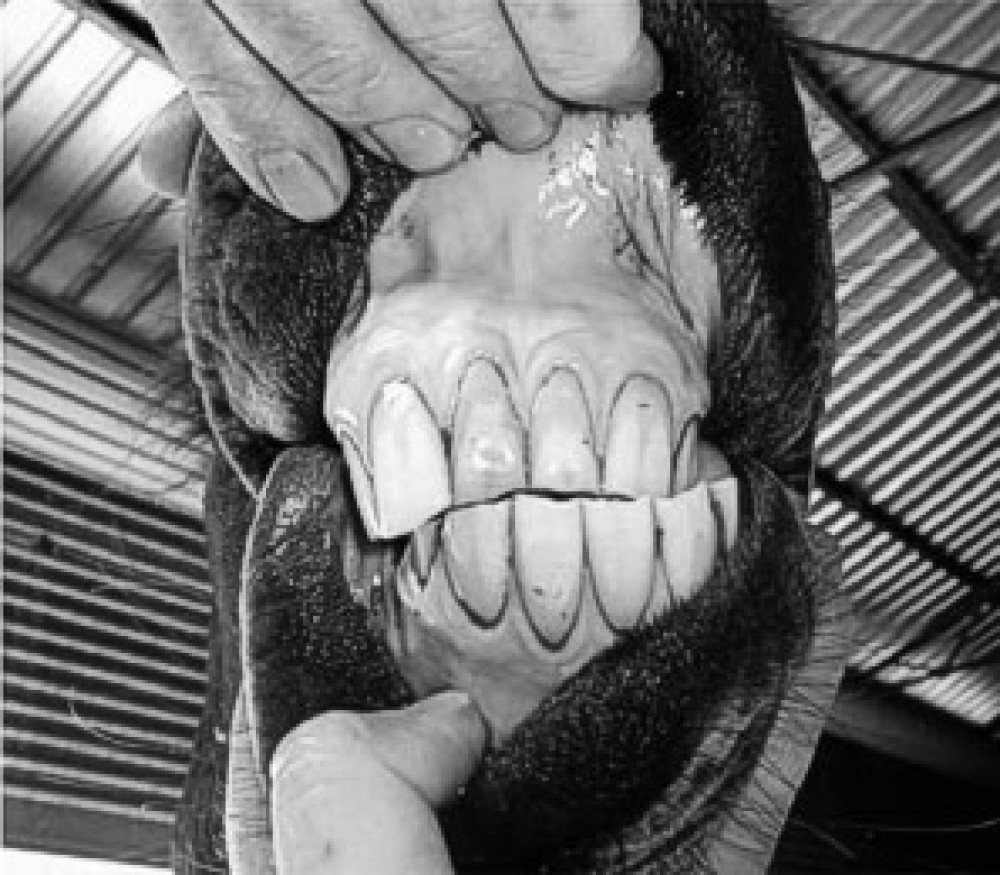
Once we are in the mouth of the geriatric horse, we need to check for all of the normal things. But we need to pay special attention to the balance in the mouth, sharp enamel points, tall teeth that may be rubbing on the opposing gums, ulceration of cheeks, periodontal disease and loose teeth.
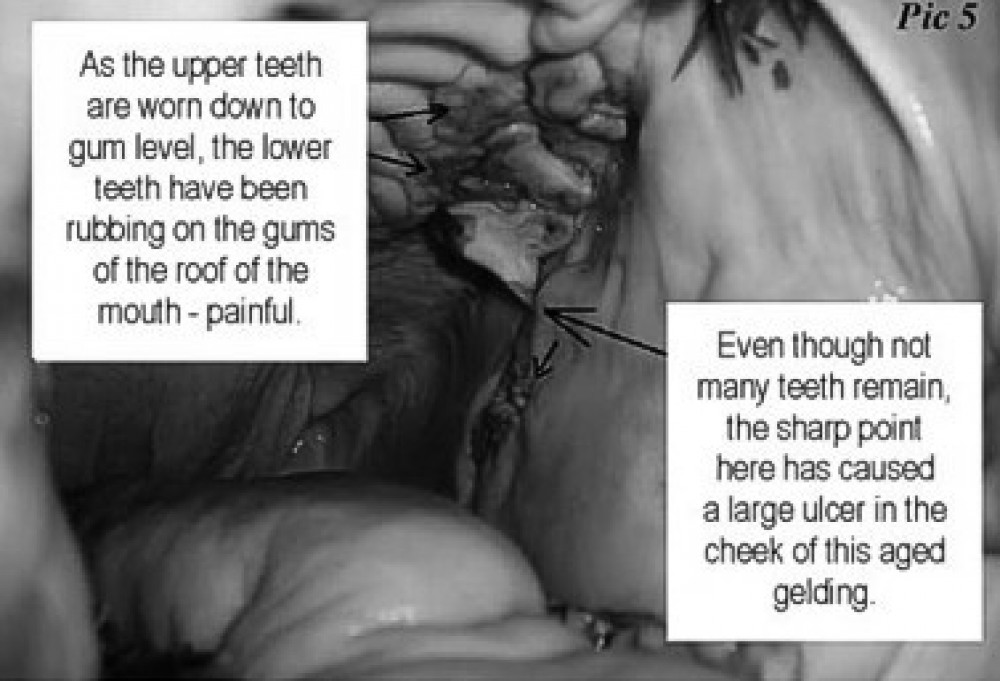
The treatment of the old horses mouth is different to younger horses. It needs to be much more conservative. We cannot make their mouths perfect again, but we can make them comfortable. Because of their lack of reserve crown, if we grind their teeth out of contact, then they will probably remain that way — useless! Thus we need to be very conservative.
It is important to remove all the sharp enamel points, and reduce tall teeth if they are rubbing on opposing gums etc. But some conditions such as waves may not be able to be corrected, for fear of taking the horses teeth out of contact forever — rendering it unable to chew properly. Obviously this is a disaster for an old horse.
It is with horror that I continue to hear of cases of old horses having had their teeth filed over aggressively by poorly educated operators, and then never being able to chew properly for weeks to months. Some of these have even had to be put to sleep!
It should be noted that the fear of power tools in some areas is due only to the poor education of some of the people operating them. Power tools for equine dentistry are like drills in human dentistry. They allow a lot more treatment options to be done in a shorter period of time. But like a scalpel in a surgeons hand as opposed to being in a childs, they are not play toys. In the surgeons hand, they enhance life, but in the childs hand they are lethal. And just because hand tools are used, it doesnt mean a dental treatment will not result in problems. Again it comes down to plain old education, and living by the motto of "first do no harm!"
If the periodontal disease around a tooth is so severe, it will probably have led to the tooth becoming loose. Thus that tooth may need to be "pulled out" or extracted. As these teeth are often quite painful, the horse may need a nerve block or extra pain relief injections to allow the horse to stay still whilst the tooth is carefully extracted. If the horse moves its head quickly during the extraction procedure, the tooth may be fractured and some fragments left in the socket. This situation needs to be avoided for the best outcome. With the invention of better sedations, and nerve blocks, more procedures are being done standing now, avoiding the risk and costs of general anaesthesia.
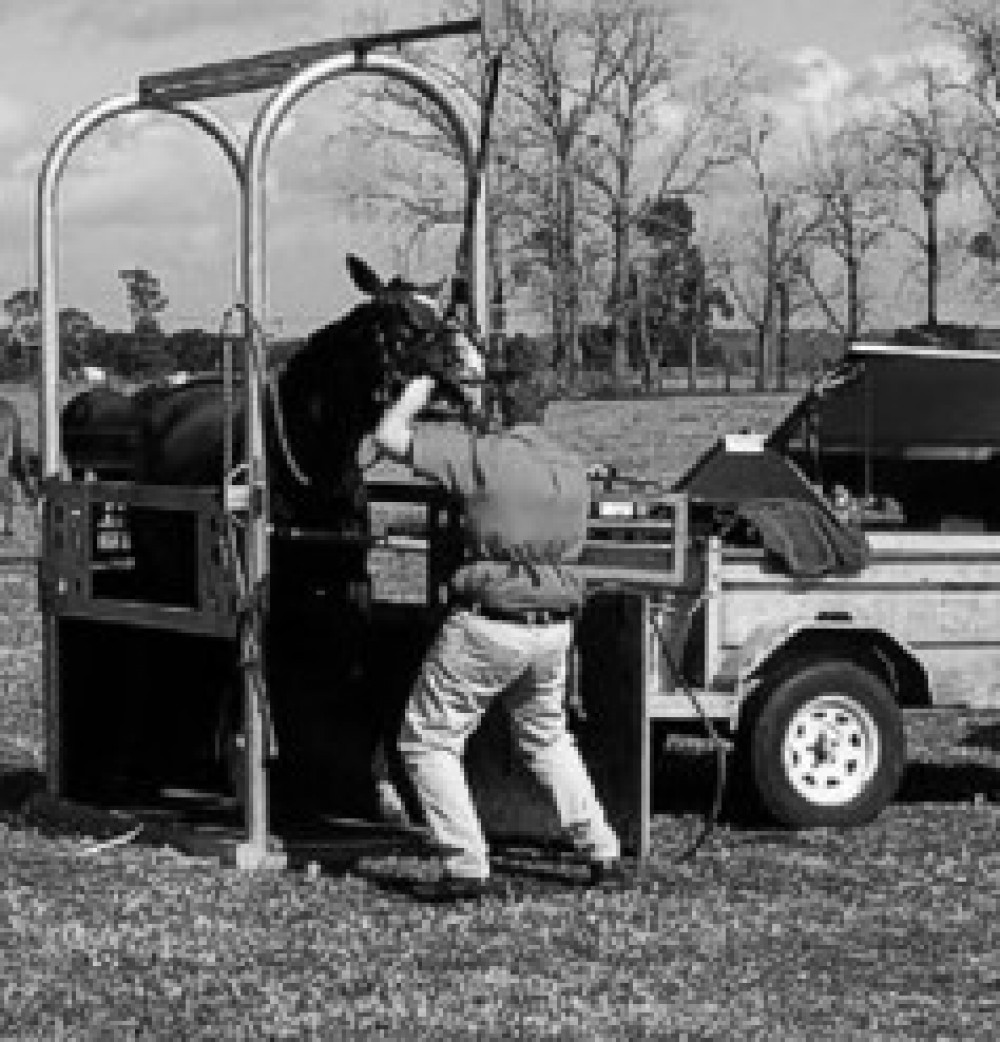
These loose teeth are often dead, and are sitting in a socket with very inflamed surrounding tissue. So when the horse eats, they cause pain. If these teeth are not removed, then they will continue to cause pain. The sore gums may also make the horse reluctant to drink cold water in winter — raising the risk of impaction colic.
Considerations of the need to use antibiotics, anti-inflammatory pain relief and tetanus coverage are also important.
If the old horse is a gelding, it is a good idea to use the opportunity of the horse being sedated to clean the sheath and check the penis for cancers and smegma beans. These are not uncommon.
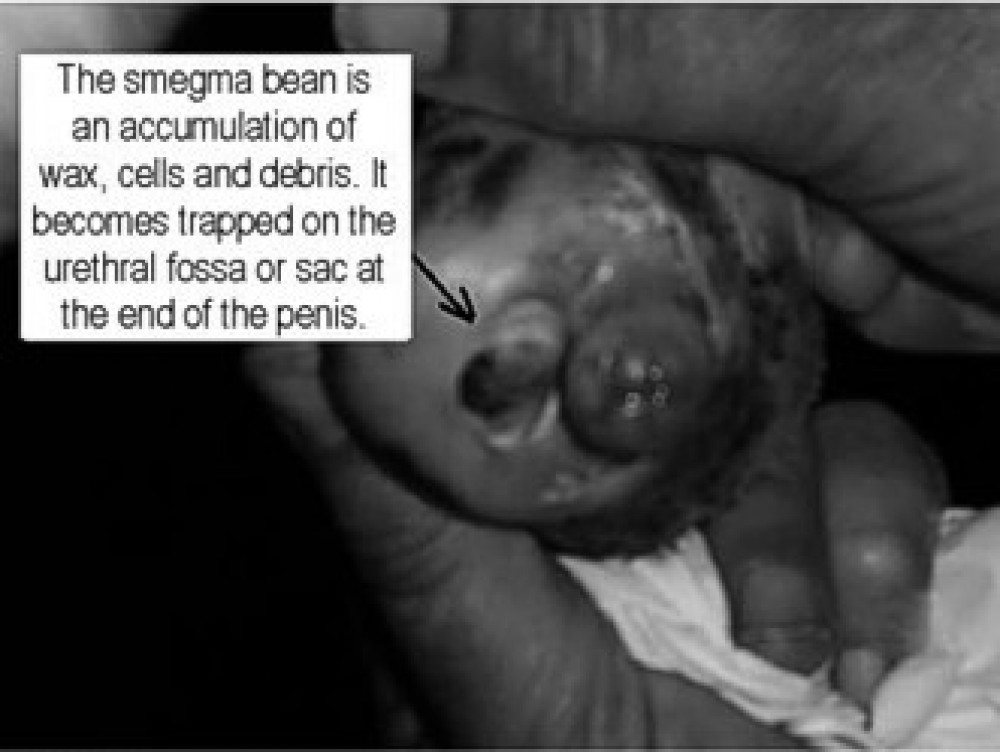
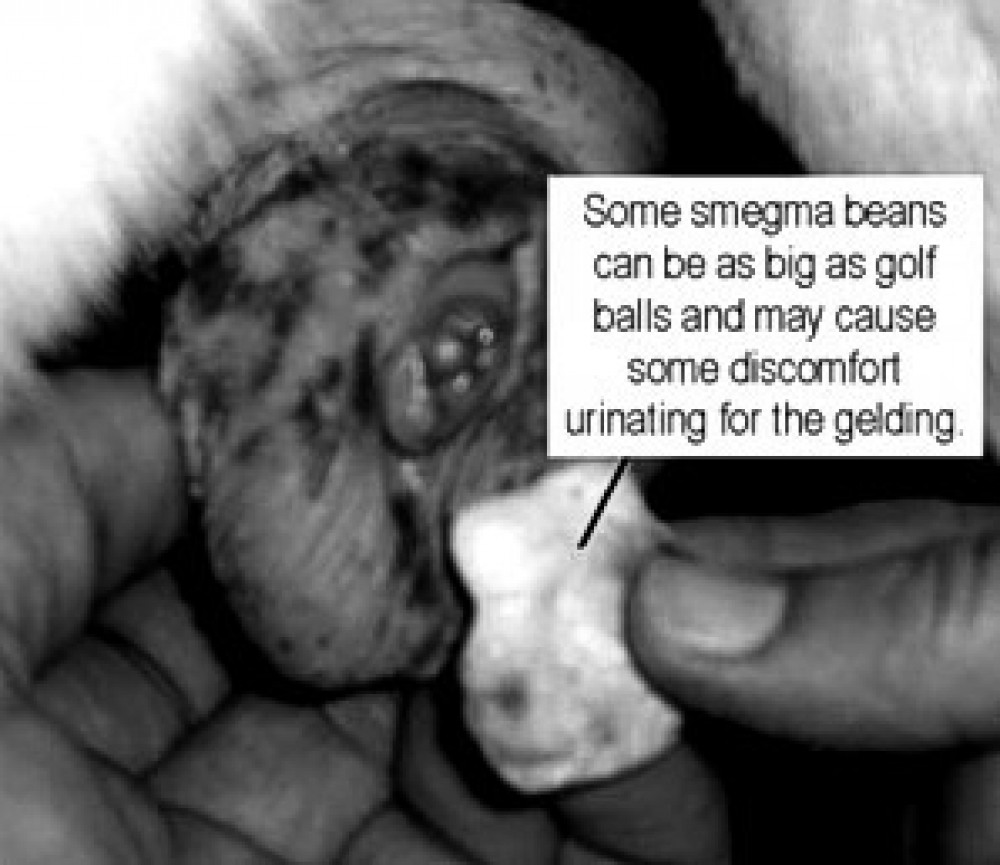
Other supportive husbandry tips for caring for the old horse are:
- good rugging in winter
- offering tepid warm water to drink in winter in case the cold water is painful to the diseased gums and old teeth
- regular deworming and faecal egg count tests
- good nutrition using a feed specific for old horses eg gumnuts or senior diet
- Vitamin C supplementation may be of benefit — 10 gms twice daily
- avoiding too much sugar eg. molasses — old horses often have difficulty with sugars just like diabetics do.
An annual health check by your vet is highly recommended to assess things such as those listed above, along with a check of the horses feet, legs, back, eyes, heart, lungs, and even a blood test or urine test to screen for underlying disease. Nature is clever in how it has taught animals to "hide" illnesses in their early stages. This serves to hide from predators the fact the animal is debilitated and an easy target.
Such an annual health check is like a screening test to detect disease in the early stages — where treatment will be more successful and often cheaper!
